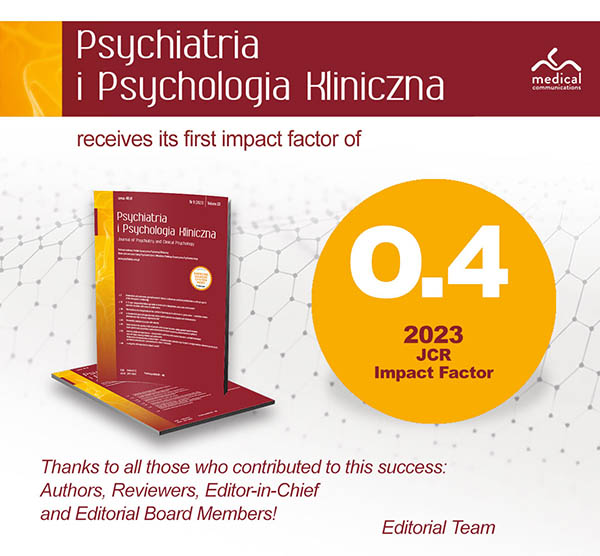Platelet count in elderly patients with unipolar depression – case control analysis
 Affiliacja i adres do korespondencji
Affiliacja i adres do korespondencjiAim: While the effect of antidepressants on platelet functions is relatively well studied, there are few studies comparing platelet parameters, such as platelet count, between elderly patients with unipolar depression and non-depressed elderly subjects. Therefore, the aim of the study was to determine if there are differences in platelet count in elderly patients with unipolar depression (DEP) compared with non-depressed elderly patients (nonDEP) using case-control analysis. Methods: We measured platelet count in 582 (DEP: n = 291, nonDEP: n = 291) Caucasian in-patients aged ≥60. The mean age of the study subjects was 77.2 years, there were 243 (83.5%) women in both study groups. Results: The mean platelet count was significantly (p = 0.02) lower in the DEP group (241.6 ± 82.0) compared with the nonDEP group (263.6 ± 107.2). We also found that platelet count was not correlated with age. Conclusions: Compared with non-depressed controls, elderly patients with depression have decreased number of platelet cells. This, combined with the known effect of antidepressants on platelet agreeability, may translate into an increased risk of bleeding complications in the course of antidepressive treatment in elderly patients. Careful monitoring of platelet parameters is therefore recommended in the clinical population of elderly depressed patients.















